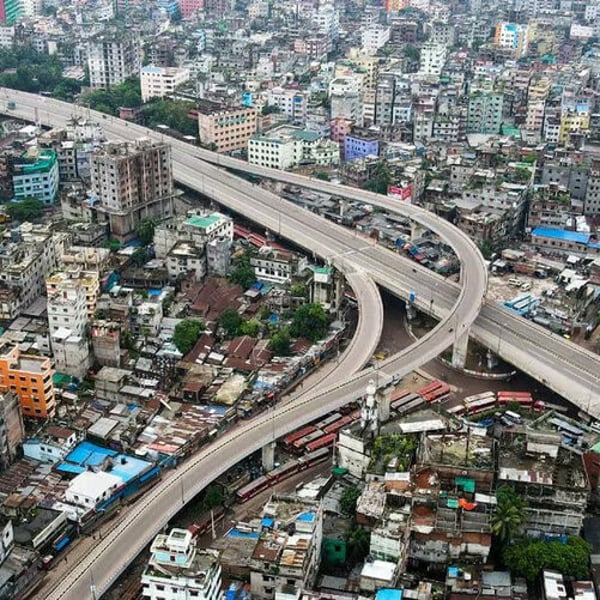Translated by
Cassidy STEPHENS
Published
Jan 3, 2024
Bangladesh has deployed its troops throughout the country for fear of violence ahead of the general elections scheduled for Sunday, which the main opposition party is boycotting.
Using armoured vehicles, the soldiers moved into temporary camps set up in the capital Dhaka to help the civilian administration maintain peace and security. The Bangladesh Nationalist Party (BNP) demanded that Prime Minister Sheikh Hasina step down to allow elections to be held under a neutral authority, but this was refused.
Sheikh Hasina has repeatedly accused the BNP of being behind the anti-government protests that have rocked Dhaka since late October, in which at least 10 people have been killed. At the end of 2023, major protests where held in the country concerning the renegotiation of minimum wages, particularly in the textiles, the country’s most strategic industry.
Textiles and clothing account for 85% of Bangladesh’s exports, with some 3,500 factories generating $55 billion in exports. In 2022, Bangladesh was the European Union’s second-largest supplier of clothing, exporting goods worth 21.8 billion euros (+52%) to the Old Continent. It was also the third-largest supplier of clothing to the United States, with €9.1 billion (+36%).
Bangladesh, which analyses its economic performance from May to June, set a new record for textile-clothing exports in 2022-2023, with €50.98 billion worth of goods. This represents an increase of 6.7% compared to the same period the previous year. From January to November 2023, the country increased its clothing exports by 4.4%, according to data released in December.
Tense elections
While Bangladeshi workers still remember the violent repression of their demands, as well as the intransigent discourse of the Prime Minister, there are concerns about the smooth running of the forthcoming elections. For the time being, the army is seeking to reassure the population by indicating that the troops deployed will only act at the request of polling station officials.

The navy has been deployed in two coastal districts and the air force will provide helicopter assistance to polling stations in remote hilly areas. People fear that the violence that has swept Bangladesh over the past two months could return after the polls.
“I don’t care which party is in power. I just want some peace so that I can earn a living and feed my family,” said Abdul Hamid, 48, a rickshaw puller in Dhaka. “I don’t think there will be peace after the elections. If there is political turmoil, it will be difficult for us to survive. This is no way to run a country. We don’t know where we stand any more.”
Sheikh Hasina, daughter of the country’s first president, came to power in 2009. Her government has been accused of authoritarianism, human rights violations and corruption.
Her main rival and two-time prime minister, BNP leader Khaleda Zia, is under house arrest. She is accused of corruption, charges her party claims are fabricated. Her son Tarique Rahman, current chairman of the BNP, is in exile after being the subject of a number of accusations that he denies.
Western countries are putting pressure on Sheikh Hasina’s government to hold free and fair elections. Christina Hajagos-Clausen, in charge of the textile industry at the international trade union federation IndustriAll, recently told FashionNetwork.com that she was concerned about the growing difficulties encountered by trade union activities in the country. These difficulties run counter to the image of progress that the country wants to project ten years after the Rana Plaza tragedy.
With Reuters
Copyright © 2024 FashionNetwork.com All rights reserved.







